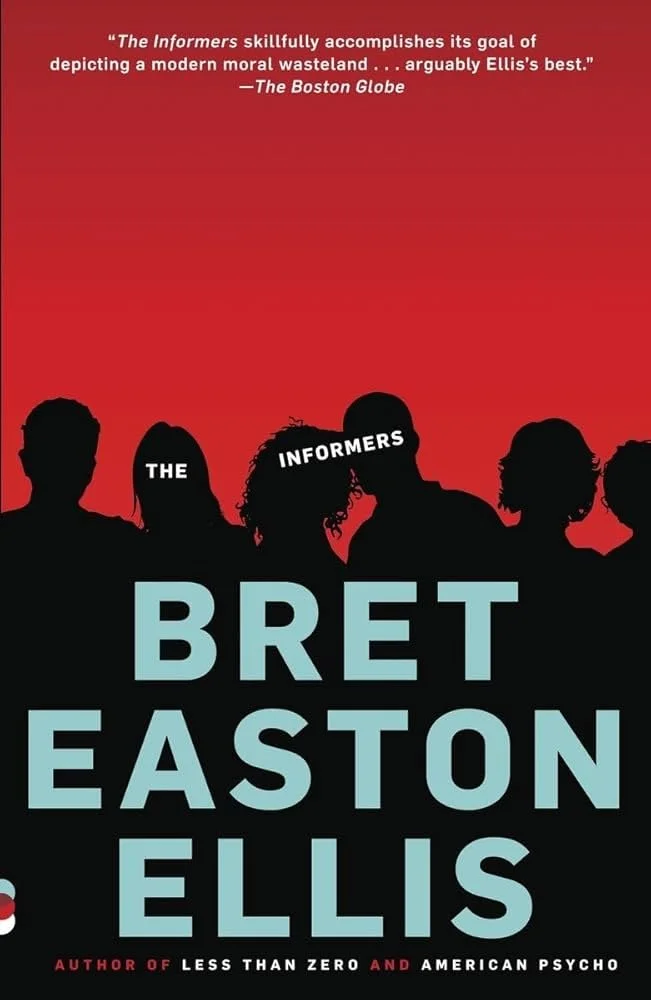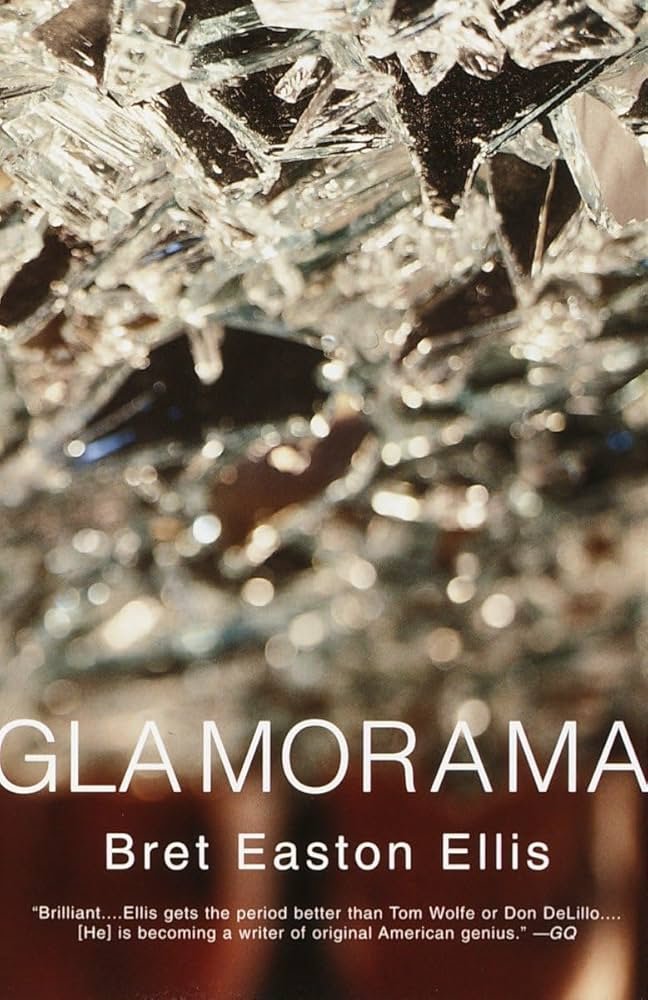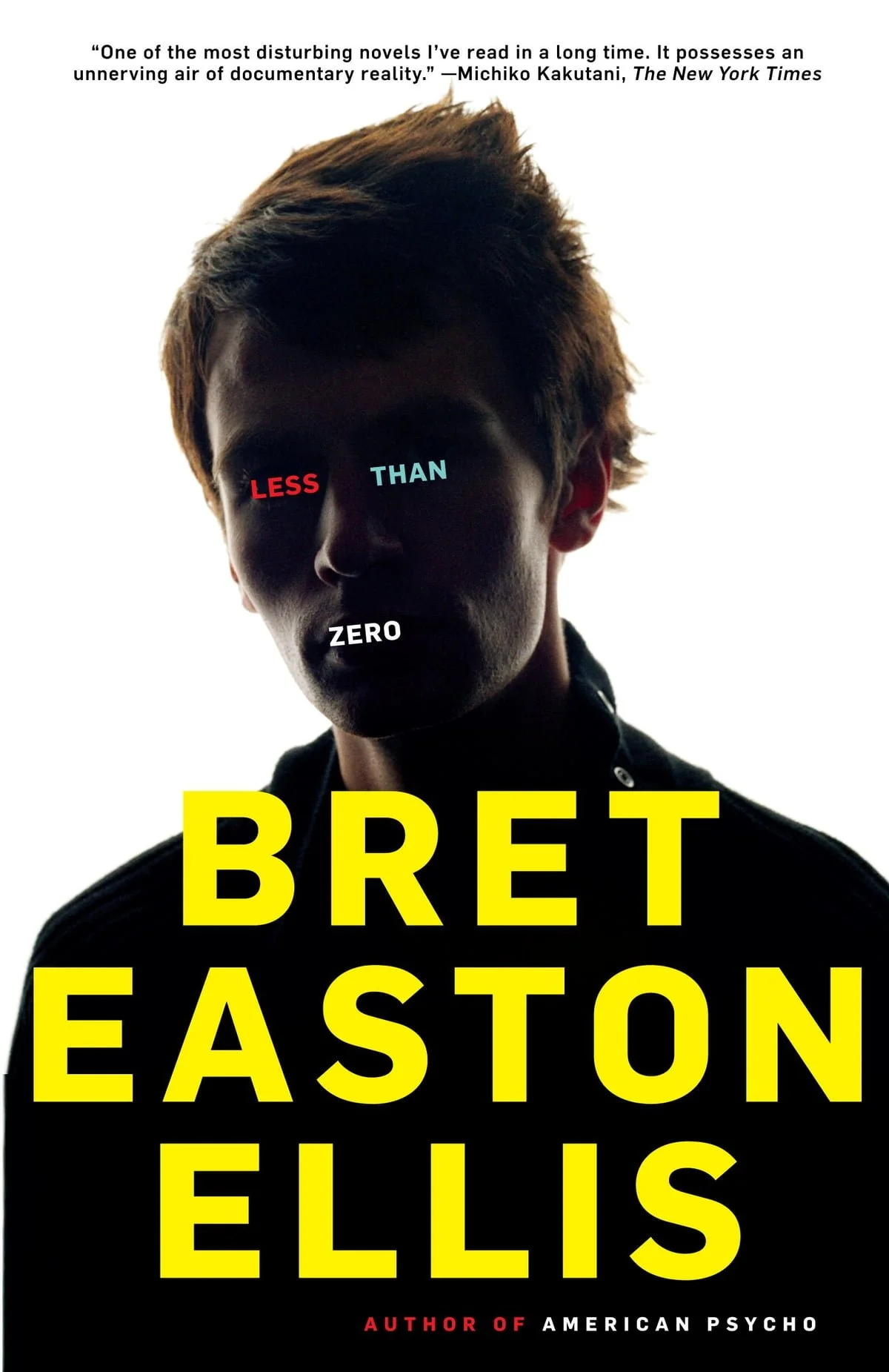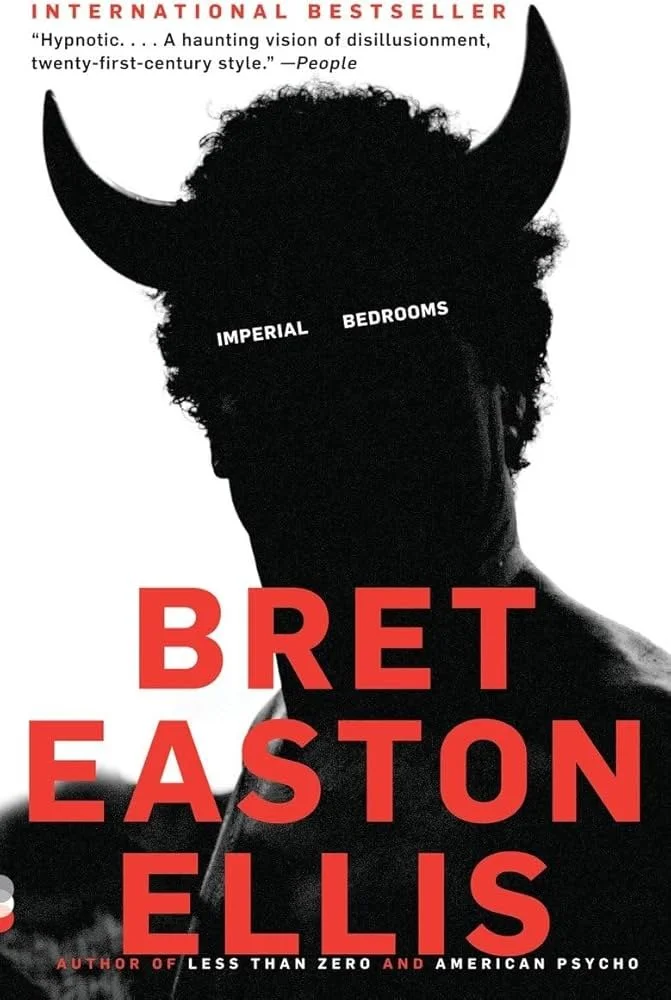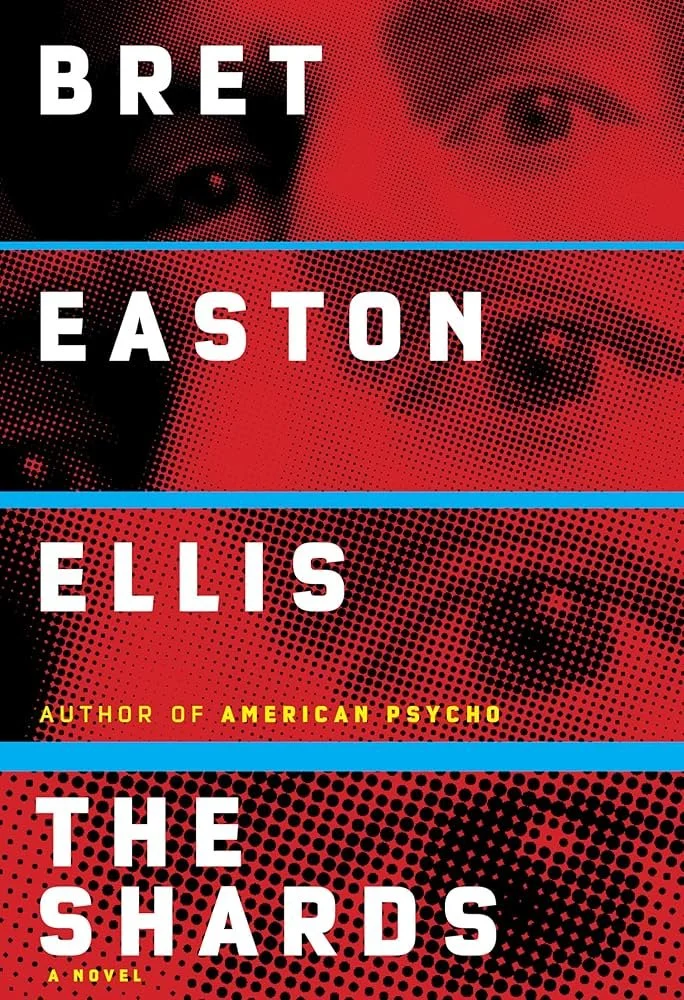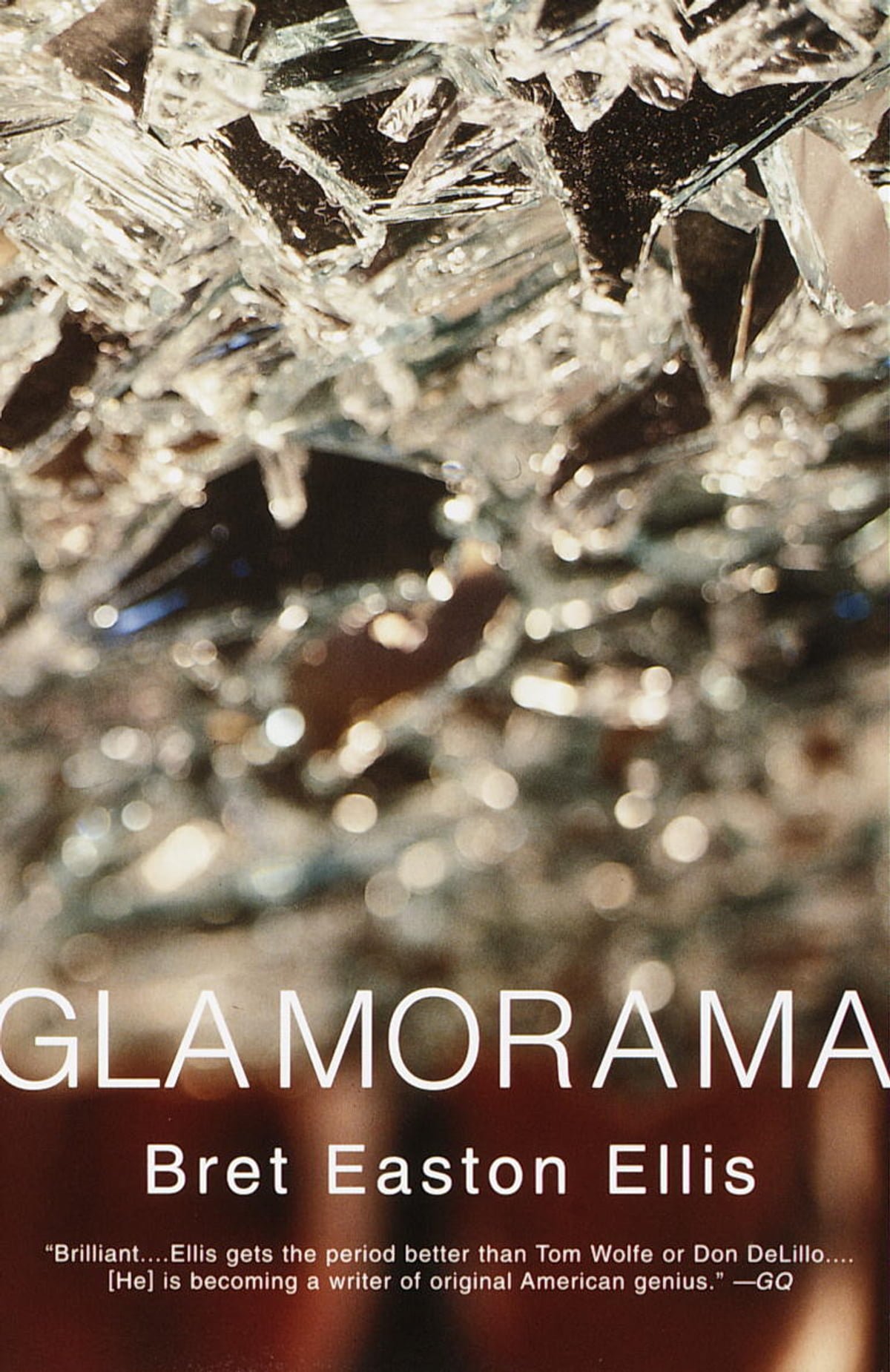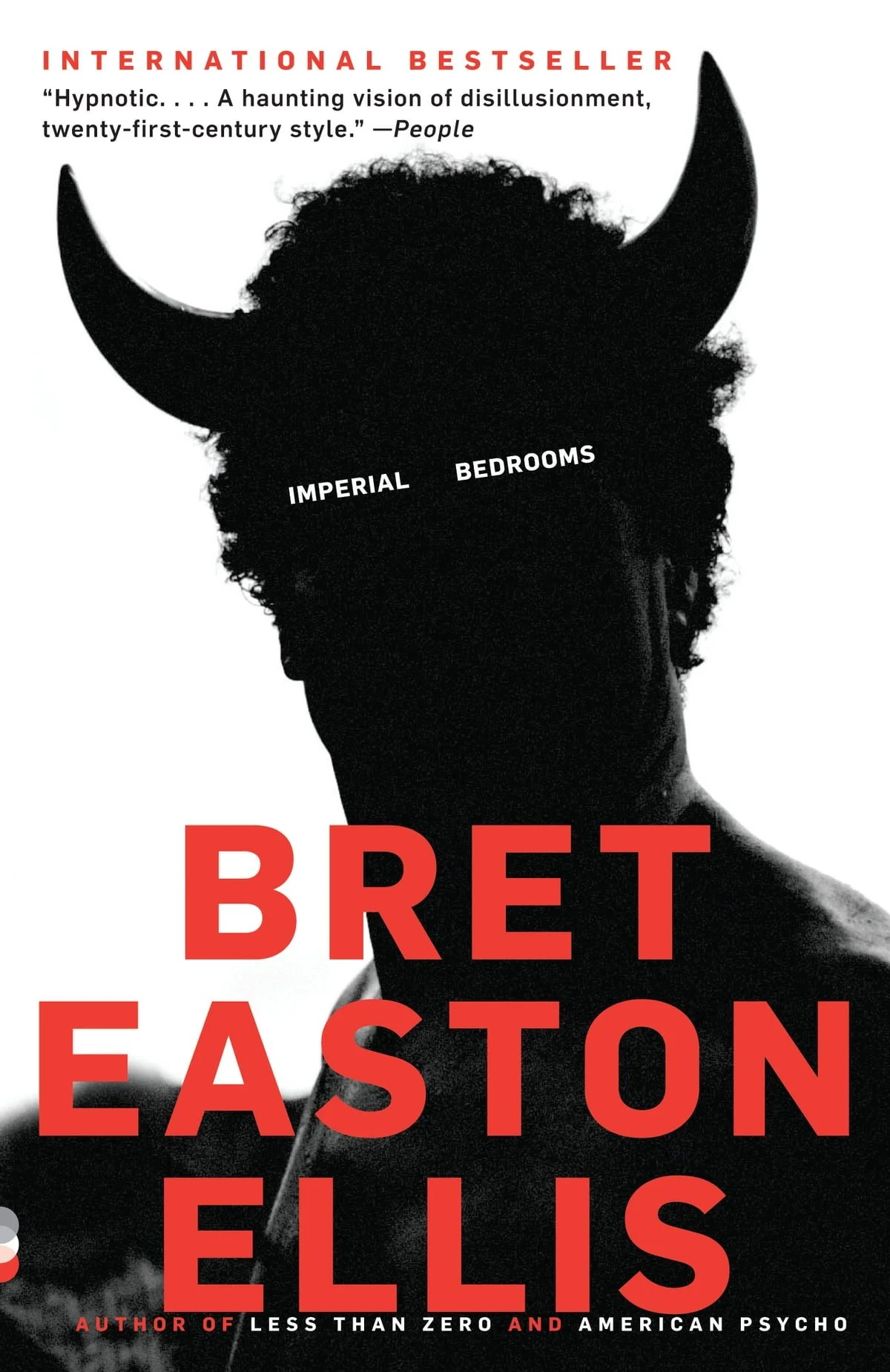Every Bret Easton Ellis Novel Ranked From Worst to Best
Three words that will forever be associated with two others: American Psycho. There’s worse fate than having written one of the most popular (and controversial) novels of the late XXth century, but Bret Easton Ellis has been an active author and public intellectual for over thirty years since the release of his gamebreaking novel. He’s very much the man who wrote American Psycho, but he’s much more than just that.
Whether you give a fuck about anything else he’s ever done is beside the point. What if I told you that what you’ve associated him with for your whole life is 1) something you’ve willfully misunderstood your whole life 2) far from the most interesting thing he’s ever done. In a little less than two years, I’ve read (or reread) all of Bret Easton Ellis novels with the goal to ultimately rank them.
So I did.
It’s tricky business because Bret Easton Ellis books tend to leave a strong impression right after you finish them, but some of them grow on you afterwards and others dim out. He’s not a writer who you can judge without letting your personality and your values leak into your appreciation process and that takes time. So, this ranking is done more or less independently of the initial rating I’ve given the books.
I used three criteria:
Entertainment: Is it a fun and gripping story? Does it venture outside of the norms of conventional storytelling at least a little bit?
Spite and self-loathing: Ellis is known to be spiteful toward his own privileged condition. His trademark is to rage against the silky comfort that turns whoever lives the American Dream into a zoinked out moron. The more present it is in his novels, the better it gets.
Provocation: It’s a dying art and Bret Easton Ellis is one of the last remaining grandmasters. That masculine urge to be dared to like something even if it’s openly laughing at you, I guess.
With that said, I don’t believe Bret Easton Ellis has ever written anything terrible. If anything, this exercise has elevated him to perhaps one of my top 10 favorite writers? His entire bibliography ranges from "decent" to "intoxicating". I did not include his 2019 essay White because it’s somewhat of a different animal, but I’ve read it and it’s fucking great. Were I to shoehorn it into this process, it would probably crack the top 3.
Without further ado…
8) The Informers
This felt like repurposed dead ends and leftovers from Less Than Zero’s editing cuts. The short stories are all solid in themselves, but they connect together in a forceful and unimaginative way that underlined some of Ellis’ earlier work : the American Dream will lead us to our own self-destruction. This is a true and courageous assessment to make (it was even more so in the hypertriumphalist nineties), but it doesn’t gel together organically.
It feels didactically written to make a point. It’s really the only Bret Easton Ellis book that feels this way and I believe it’s because these stories don’t really have a point otherwise. Shout out to Discovering Japan that scored high in provocation. I love reading about people who are wobbling messes and yet are being enabled by every fucking person in their lives. It’s a fun book, somewhat of an addendum to Less Than Zero, but not mandatory by any means.
7) The Rules of Attraction
A sneaky difficult polyphonic novel about life on the ongoing debauchery going on at Camden, Ellis’ iconic fictional liberal arts college. Stripped of the soulful gaze of Less Than Zero’s narrator Clay (who is nonetheless awarded a short chapter in The Rules of Attraction), it’s a much more violent and harrowing experience. Whether it is inherent or on the page, the violence is best embodied through Patrick Bateman’s libidinous deadbeat little brother Sean.
Completists will also love that Pat also has a short chapter in this novel. A film adaptation has been made in 2002 and outside of being the most 2002 thing ever created, it captured the dislocated and disorienting feeling of reading the novel. The Rules of Attraction is early Bret Easton Ellis at his rawest and most in-your-face provocative. It feels desolate, but it’s a powerful counterperspective to Less Than Zero.
6) American Psycho
Hot take! American Psycho is a very good novel, but it’s nowhere near the best thing Bret Easton Ellis has ever written. He would hate me for saying it, but the movie is much better. Mostly because it doesn’t club you upon the head with brand names and superficial details characters in the novel use to make up for their lack of personality. The movie features just enough of it to make its point. The book is unsurprisingly excessive in that regard.
I believe American Psycho was way more of a groundbreaking novel when it came out than it would’ve been had it came out today. It’s one of these works of art the rise of the internet has engulfed. Don’t get me wrong, it’s searing and traumatic (and it’s clearer in it that Patrick Bateman isn’t some cool-ass Apex predator), but the sheer mind-numbing repetition will both make Ellis’ point and suck the life out of your reading with the same potency.
5) Glamorama
Another hot take: American Psycho was a practice swing for Glamorama. Only problem for the latter was that it came out too late and society had already digested the onslaught of violence delivered by Bret Easton Ellis’ seminal novel. I love how Glamorama has a fundamentally dumb protagonist who cannot figure his way out of a paper bag. Victor Ward is an assault on meaning in himself. He doesn’t have any interiority.
He’s the person you want to be and somehow Victor’s brand of social importance seems like the most vacuous human experience imaginable. Half of Glamorama is about terrorist fashion models, which is both absolutely bonkers and in line with Ellis’ ideas of America destroying itself from within. It’s somewhat all over the place, but in a good way. It’s written like a coked up DeLillo’esque thriller and I mean that in the best way possible.
4) Less Than Zero
The endearing thing about Less Than Zero is that it’s a heartbroken assessment of the failure of our way of life. Written from the perspective of a young Californian (which Ellis was then), it makes the groundbreaking observation that the way of life we all dream about and aspire to is a poisoned ideal and that triumphing in a capitalist society breeds a generation of purposeless kids who won’t know what to do with the obscene amount of freedom they’re born in.
It was a shocking idea then. Ellis’ assessment was prescient although we’re almost forty years later and no one wants to admit to such a defeat even if it happened a long time ago. Clay’s point of view is what makes the novel work. He feels trapped in this environment where he has everything he desires and yet doesn’t have the tool to understand (or simply accept) that he has other options. It’s Ellis’ most realistic work, but one of his most uncomfortable.
3) Imperial Bedrooms
A sequel to Less Than Zero both in essence and philosophy. Maybe I preferred it to the original because I’m older myself now and I understand better the stakes of giving up on your youthful idealism or simply just deluding yourself into thinking you’re successful. Imperial Bedrooms is a lot more cynical than its predecessor, but it feels like it’s attuned to the era where it was written and that it accounts for how the world evolved in the twenty-five years in between.
Another detail I loved about this book is how dingy and labyrinthine Los Angeles is portrayed. Every building is either empty or populated by people who never meet each other. It’s luxurious for the sake of being luxurious. It’s not enjoyed by anybody. The architecture is pleasant to the eye, but oppressive to live in. I’m a sucker for atmospheric elements like this. Imperial Bedrooms divided opinions when it came out, but half of the critics are wrong.
2) Lunar Park
An awesomely weird Cheevesque novel about an alternate reality where Bret Easton Ellis married, had kids and tried to live a standard life in an affluent white picket fence neighborhood in Long Island. Not only is this proposition adorably weird, but Bret-the-character is being haunted by the metafictional legacy of Bret-the-author who’s still struggling with the passing of his father and the cultural shockwave of American Psycho.
Not only it’s enlightening to witness Ellis reflect on the relationship he entertains to his own work, but it’s oddly moving to see him struggle against his nature and trying to force himself into being someone he isn’t. That creates an emotional bond with the reader that is absent from almost all of his other novels. It was meant to be a tribute to Stephen King, but it ended up being a lot more than that. I think the shitty cover art greatly handicapped its success.
1) The Shards
In The Shards, Bret Easton Ellis does everything that was compelling in his other novels, except better. It has a crazy cynical output on affluent youth in 1981 Southern California, it has this outlandish and hyperviolent plot, both disposable and endearing characters and it’s fucking outlandishly funny and ironic at times. I had such a wicked good time reading this novel, you wouldn’t believe it.
I know he is primarily loved for novels he’s written over thirty years ago, but Bret Easton Ellis is getting better with age. His reflexive output on the perception of his work (and his own self-perception) is riveting and he uses it to fuel is ever distorting nightmare about the eighties. He’s probably going to write more novels in the future (and I’ll be there for it), but were he to choose to retire, he would do it at the height of his abilities with The Shards.
* Follow me on Instagram to keep up with new posts *


